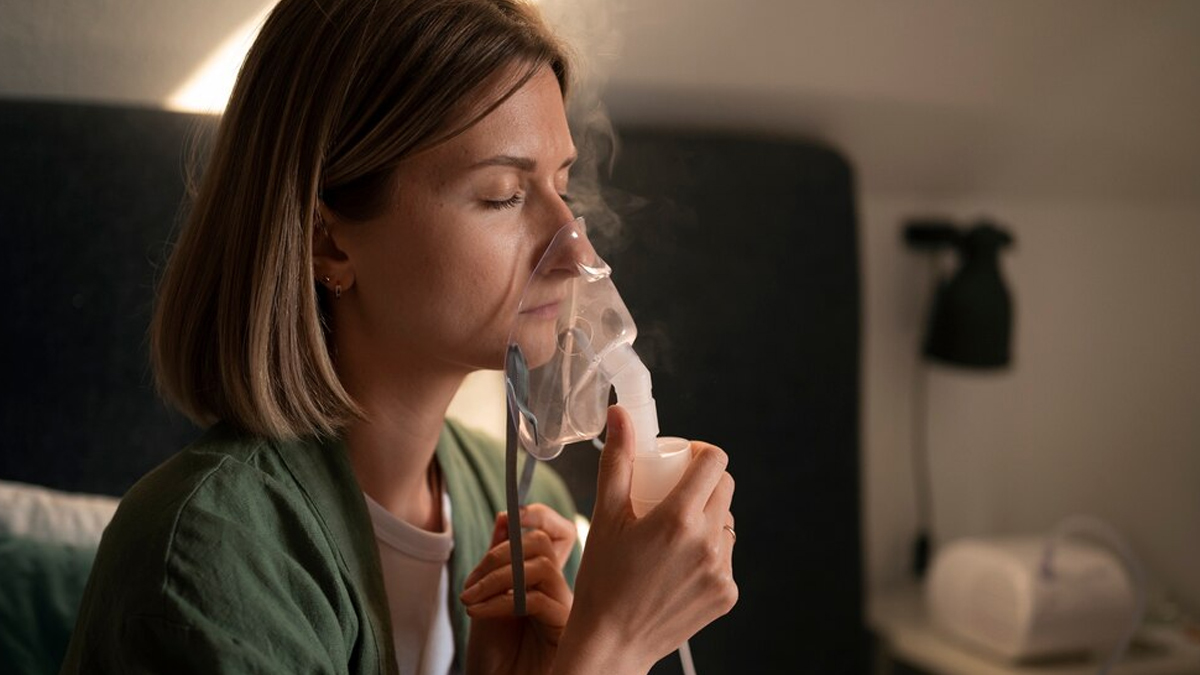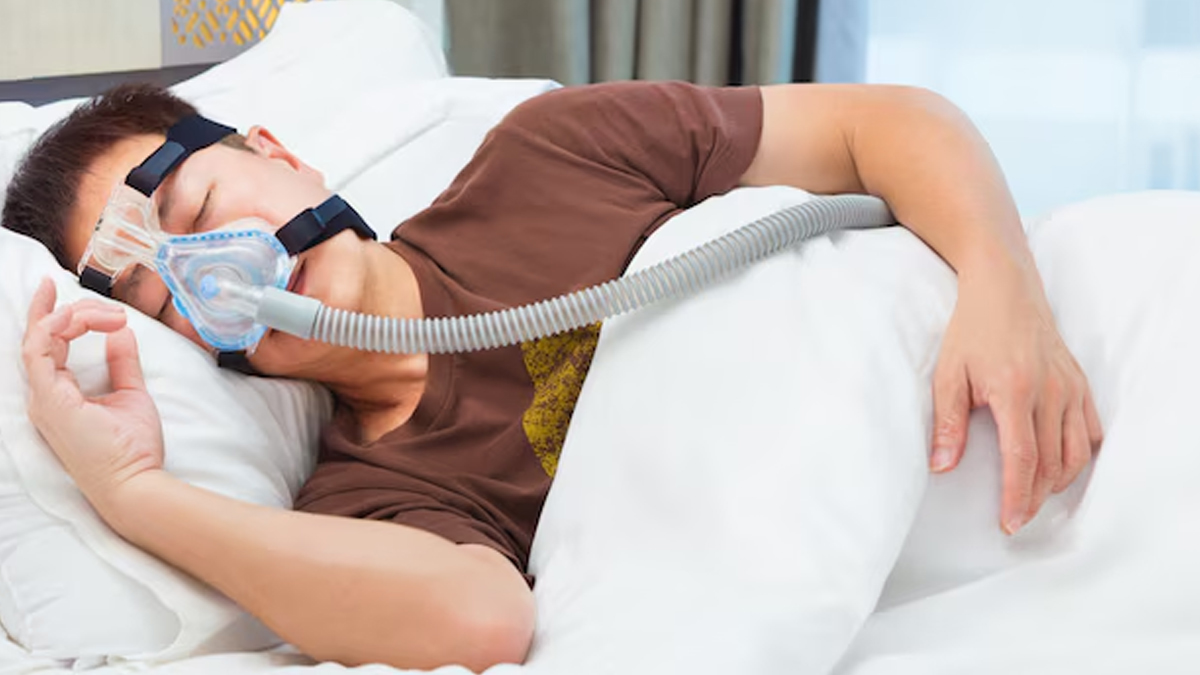
When it comes to maintaining our overall health, a good night’s sleep is essential. However, many factors can affect sleep quality and quantity.
Both nocturnal asthma and sleep apnoea can affect breathing. These are two chronic respiratory conditions that obstruct airways and cause sleep disruption, which can lead to daytime fatigue and drowsiness. However, the two are not the same and have different causes, symptoms, and treatments. The only shared link between the two conditions is that sleep apnoea can worsen or exacerbate asthma symptoms. So, how do you distinguish the two conditions and manage them separately for better sleep? Here’s what an expert has to say.
Table of Content:-
Also Read: Why Does Winter Worsen Asthma Symptoms? Doctor Shares Tips To Combat
What Is Nocturnal Asthma?

Dr Sanjay Manchanda, Chairperson - Sleep Medicine, Gangaram Hospital, New Delhi, defines asthma as an inflammatory or allergic condition that affects the airways, causing difficulty in breathing out due to the narrowing of the airways.
Nocturnal, or nighttime, asthma is a type of asthma that occurs when a person is sleeping. According to a review article published in the Asian Pacific Journal of Allergy and Immunology, up to 60% of asthma patients are said to suffer from nocturnal asthma.
What Is Sleep Apnoea?
Sleep apnoea is a sleep disorder that causes abrupt interferences in the breathing during sleep. It can be characterised by loud snoring, waking up gasping for air, daytime tiredness even after a full night's sleep, and headaches. Obstructive Sleep Apnoea (OSA) is a common type of sleep apnoea that affects 9-38% of the global adult population, according to a study published in the Sleep Medicine Reviews.
The Link Between Sleep Apnoea And Asthma

According to Dr Manchanda, there isn't a direct correlation between sleep apnoea and nocturnal asthma. However, sleep apnoea can exacerbate asthma.
Breathing through an open mouth during sleep apnoea can cause dryness in the throat and allow bacteria and dry air to irritate the airways, potentially triggering asthma symptoms, the doctor explains.
Also Read: Can Sleep Apnoea Increase The Risk Of Cancer? Doctor Explains
Key Differences Between Nocturnal Asthma And Sleep Apnoea
While asthma and sleep apnoea may have certain similarities, the two conditions are different.
While nocturnal asthma is an inflammatory condition often triggered by allergens, sleep apnoea is a structural issue, where the airways collapse due to anatomical problems like a small or receding jaw, shares Dr Manchanda.
The two conditions are also diagnosed differently. Asthma is diagnosed with lung function tests, whereas sleep apnea is diagnosed with sleep studies, also called polysomnography, that measure breathing patterns during sleep.
Additionally, asthma symptoms include wheezing, coughing, chest tightness, and shortness of breath. However, sleep apnoea can be identified by loud snoring and interruptions in breathing during sleep.
How To Manage Nocturnal Asthma And Sleep Apnoea Separately?

When it comes to nocturnal asthma, Dr Manchande recommends identifying and avoiding known allergens. Starting medication 2-3 weeks before anticipated worsening periods (e.g., seasonal changes) can be beneficial, he adds.
On the other hand, a healthy weight, especially in obese people, can significantly improve sleep apnoea, though it's rarely a complete cure. Other treatments include the use of Continuous Positive Airway Pressure (CPAP), a machine that helps keep airways open, and surgery, in severe cases.
Takeaway
Dr Manchanda emphasises that asthma and sleep apnoea are distinct conditions that require separate diagnoses and management strategies. While sleep apnoea may worsen asthma symptoms, there's no direct relationship between the two. Still, the two conditions need to be managed effectively, especially for long-term respiratory health and better sleep.
Also watch this video
How we keep this article up to date:
We work with experts and keep a close eye on the latest in health and wellness. Whenever there is a new research or helpful information, we update our articles with accurate and useful advice.
Current Version